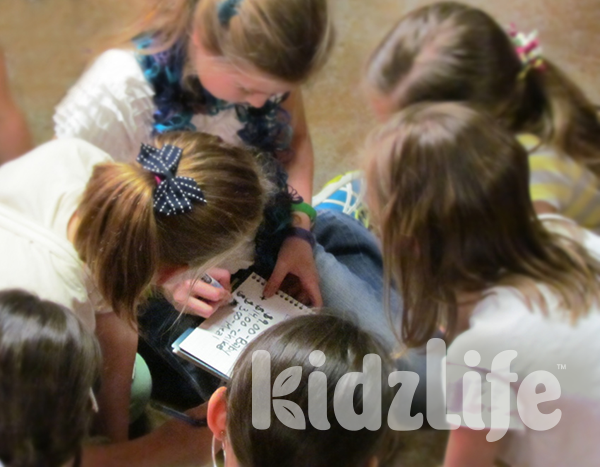Several years ago, when my son was about ten years old, ready to shake off the remainder of his 5th grade year and launch into middle school, we had some deep discussions about apologetics. The first convo started something like, “Mom, I know what the Bible says and all, but how do I know if it’s really true?” Fueled by our discussions at home, I asked my small group at church (comprised of 5th grade girls) to raise their hands if they had questions about how we know the Bible is really true. They looked at me for a moment. I assured them it was fine to be totally honest. Not just one or two hands went up. Every. Single. Hand.
I didn’t panic. Instead I was overwhelmed with gratitude that God had revealed it. I was so thankful that they were honest enough to share it. It gave us time to talk about it. In fact, our team immediately planned a weekend retreat for all of our 5th graders so we could dive headlong into their questioning. We invited an expert in apologetics who specializes in speaking to youth to explain how literature is dated and the various ways we can authenticate scripture from sources outside of the Bible. We allowed time for Q&A. It was a weekend well spent.
Pastor Tim Keller once said, “A faith without some doubts is like a human body without any antibodies in it. People who blithely go through life too busy or indifferent to ask hard questions about why they believe as they do will find themselves defenseless against either the experience of tragedy or the probing questions of a smart skeptic. A person’s faith can collapse almost overnight if she has failed over the years to listen patiently to her own doubts, which should only be discarded after long reflection.”
Can we afford for our elementary kids to move into junior-high and high school without spiritual antibodies? Certainly not! That’s why we must give kids ample time to discuss their beliefs and even their doubts. As a parent, don't fear the doubt, and be sure not to dismiss it. Think of it as an opportunity to go deeper with your child. Consider working through books like Lee Strobel's The Case for Christ (student edition) with your child.
As a small group leader, welcome the opportunity for more discussion. We always say that small groups are “where the rubber meets the road.” It’s where kids have a voice; it’s where kids are not just allowed–but encouraged–to talk about what they think and what they believe. It’s where loving leaders can clear up misunderstandings and point them to the rock of God’s word. It’s in the discussion and the digging deeper that our kids (and all of us, really) grow the kind of faith that stands up to scrutiny and hardship down the road.
The father instantly cried out, “I do believe, but help me overcome my unbelief!” – Mark 9:2




















